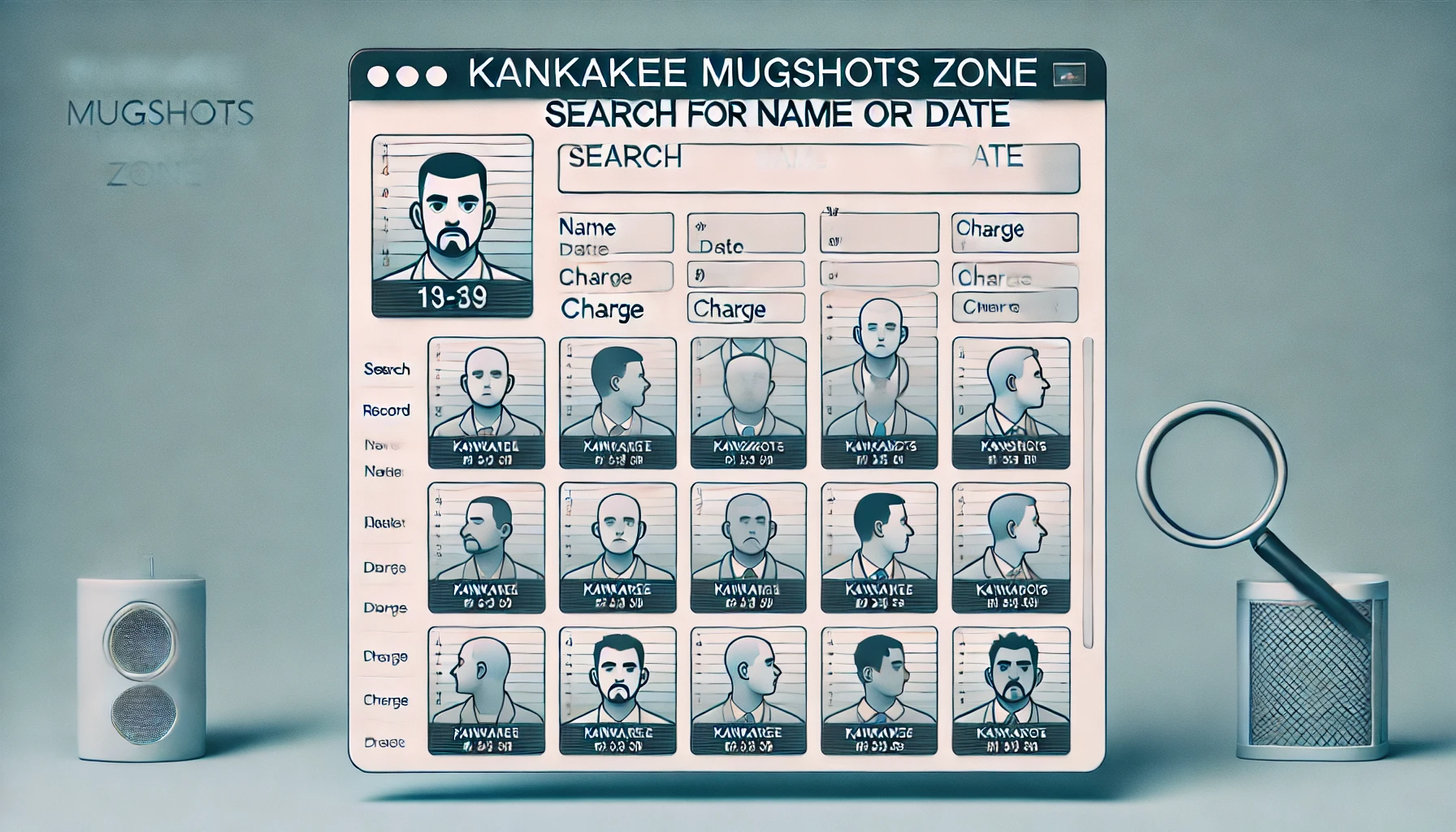Kankakee Mugshots Zone
Introduction to the Kankakee Mugshots Zone
Kankakee Mugshots Zone is a term that has come into usage as people increasingly seek access to public records and information regarding arrests and law enforcement activities within Kankakee County, Illinois. Mugshots, which are photographs taken by police at the time of an individual’s arrest, are part of public records and often serve as a valuable tool for law enforcement agencies and the community. In recent years, online access to these mugshots and related information has become more widespread, creating both convenience and controversy.
This article dives into the purpose, advantages, and limitations of the Kankakee Mugshots Zone, offering an overview of how this resource works, who benefits from it, and how it fits into the broader criminal justice landscape.
Understanding Mugshots and Their Purpose
Mugshots are a standard part of the booking process in law enforcement. Taken upon an individual’s arrest, they serve as a visual record of the individual’s identity at the time of the alleged crime. This standardized practice aids police in creating a criminal database, helping to recognize repeat offenders, and assisting in investigative work by providing a quick reference point.
In the context of the Kankakee Mugshots Zone, mugshots typically include the arrested person’s name, date of arrest, charges, and occasionally additional information about the alleged offense. It is important to note that the presence of a mugshot does not equate to guilt; individuals are presumed innocent until proven guilty.
How the Kankakee Mugshots Zone Works
The Kankakee Mugshots Zone is part of an online ecosystem that provides searchable access to public arrest records. Residents of Kankakee and nearby regions may use these databases to stay informed about recent arrests and incidents in their communities. These databases are usually managed by third-party websites that pull records from police databases and public archives. While the sites are not directly affiliated with law enforcement, they gather data from police departments to keep communities updated.
The Kankakee Mugshots Zone typically allows users to search by name, date, or charge type, providing a quick way to gather details on recent arrests. Access to this information online has made it easier for people to stay informed about public safety in their area.
Benefits of the Kankakee Mugshots Zone
- Public Awareness and Safety: One of the primary benefits of the Kankakee Mugshots Zone is the heightened level of public awareness it offers. By providing access to recent arrests, residents can stay informed about potential safety concerns, such as recurring crime patterns or individuals who may pose a risk.
- Transparency and Accountability: Public access to mugshots promotes transparency in the criminal justice system, allowing citizens to see who is being arrested and for what charges. This can foster greater accountability in law enforcement practices and help to ensure that the criminal justice system operates openly.
- Assisting Law Enforcement: The availability of public arrest records can help law enforcement agencies by encouraging community involvement in crime-solving efforts. Citizens can act as additional “eyes and ears” when they are aware of recent incidents, which may assist police in gathering leads or tips.
- Protecting Against Repeat Offenders: Knowing about repeat offenders in the community can offer added protection for residents, especially in cases involving serious crimes. The Kankakee Mugshots Zone can help residents remain vigilant, especially if someone with a history of arrests is reappearing in public records.
Ethical Concerns Surrounding Mugshot Publishing
While there are clear benefits to public access to mugshots, there are also ethical concerns, particularly regarding privacy and the potential for stigma. Arrests are not convictions, and publicly sharing mugshots can lead to unfair judgment against individuals who have not been found guilty of a crime. The effects on an individual’s personal and professional life can be profound, impacting employment opportunities, relationships, and community standing.
Some legal advocates argue that online mugshot databases exploit vulnerable individuals by capitalizing on their legal troubles. Certain websites even charge fees to remove mugshots, creating a monetized system around personal hardships, which has led to ongoing debates about privacy rights.
The Impact of Online Mugshot Databases on Community Perception
With access to the Kankakee Mugshots Zone, community perception of safety and crime can be directly impacted. When residents see an influx of arrests in their area, it may lead to heightened awareness of local crime. However, this increased awareness can also result in a skewed perception of public safety, as residents might assume that high arrest rates necessarily mean high crime rates.
Over time, the constant availability of arrest records may foster distrust of certain individuals or groups, especially if people are unaware that an arrest is not an indicator of guilt. Therefore, it is crucial to balance public access to information with responsible consumption and awareness of what these records truly represent.
Legal Guidelines Governing Mugshot Accessibility
Mugshots are considered public records under the Freedom of Information Act (FOIA) in Illinois, which allows people to access them unless there are specific circumstances that restrict their publication. These laws are designed to promote government transparency but can raise privacy concerns for the individuals involved. In some states, mugshot laws are stricter, limiting the public’s access to mugshots for cases where convictions have not yet been made.
Illinois allows mugshot access, but there are restrictions regarding how that information is used, particularly to prevent discrimination. As mugshots are distributed through resources like the Kankakee Mugshots Zone, maintaining adherence to these legal guidelines is essential to protect the rights of the accused while respecting the public’s right to information.
Alternatives to Public Mugshot Databases
As awareness grows about the ethical concerns of mugshot databases, some communities and organizations are exploring alternative methods for sharing public safety information without compromising individuals’ rights to privacy. Alternatives include:
- Detailed Crime Reports: Publishing detailed crime reports that omit mugshots can still provide essential information to residents without including personal images of individuals who have not been convicted.
- Community Crime Alerts: Rather than focusing on individuals, community alerts can focus on specific incidents and encourage public vigilance regarding particular types of crime.
- Updated Legislation: Some communities are pushing for updated legislation to protect individuals from exploitation and ensure that mugshots are not used to shame people publicly.
Conclusion: Finding Balance in the Kankakee Mugshots Zone
The Kankakee Mugshots Zone serves as a valuable resource for public safety and awareness, yet it also poses ethical and privacy-related challenges. As the public continues to seek access to arrest records, balancing transparency with individual rights remains crucial. Understanding the purpose and limitations of mugshots, along with their broader impact on community perception, can help ensure that the resource is used responsibly.
With evolving legislation and growing public discourse around this issue, the future of mugshot databases like the Kankakee Mugshots Zone may involve changes aimed at better balancing transparency with respect for individual privacy. As communities strive to protect their residents, maintaining awareness of how information is shared and consumed remains essential to fostering both safety and ethical standards.










